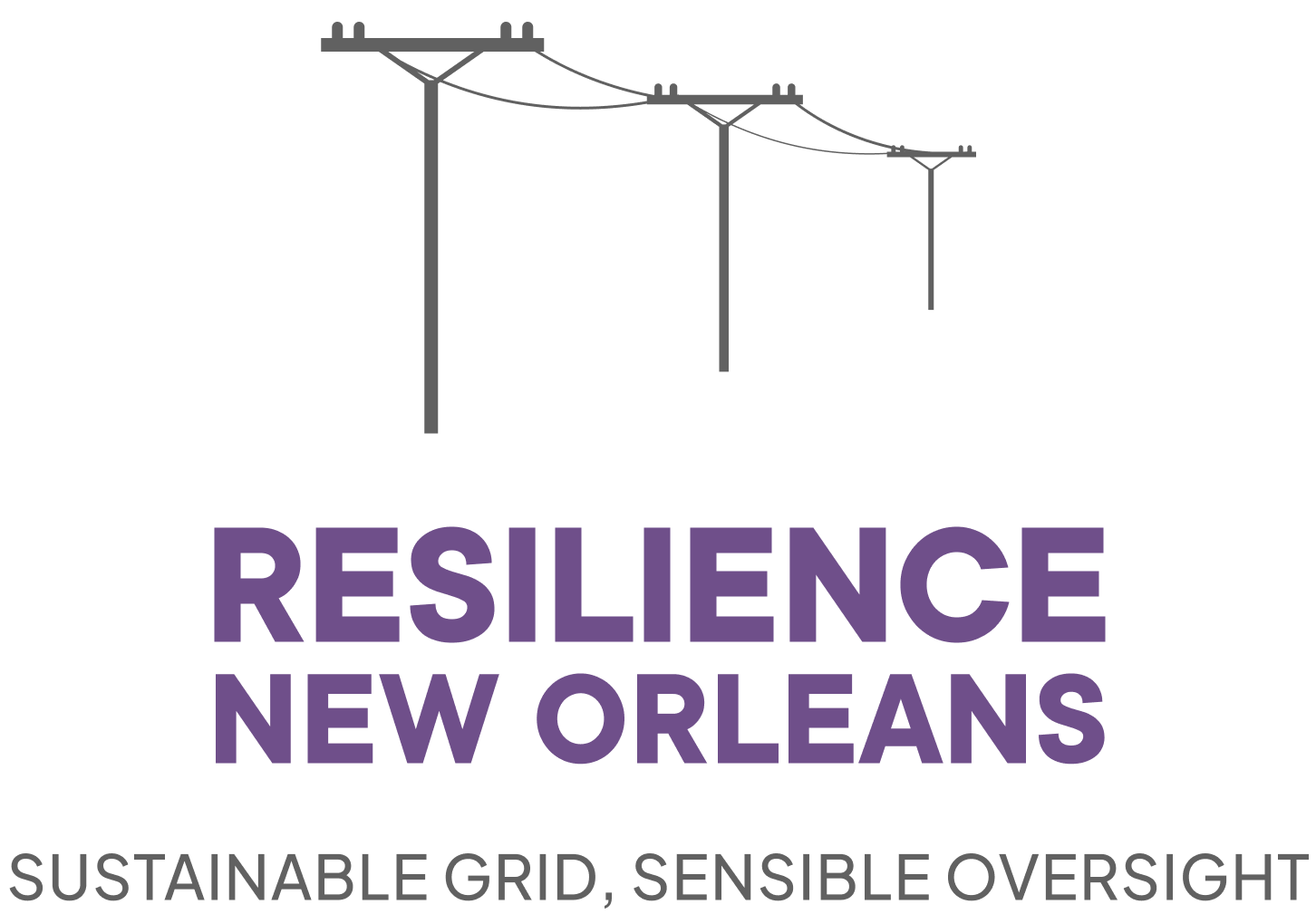As you may know, Entergy New Orleans is currently planning to sell its gas distribution business to Delta States Utility. Recently, a local nonprofit – the Alliance for Affordable Energy – filed testimony with the New Orleans City Council, outlining three options to ban natural gas in the city by December 31, 2035, and effectively blocking the sale of Entergy’s natural gas division to Delta States Utility. The three options given to the council are the following:
Option 1: The Council should direct ENO to develop a retirement and managed decapitalization plan for the gas distribution utility that will result in ending all gas distribution service to residential and small commercial customers, and accompanying electrification of former gas energy loads, by no later than December 31, 2035.
*This means: The utility must cancel the sale of its gas services to Delta States. Then, stop service to residential and small commercial customers (convenient stores, restaurants, small businesses). Large users will still use gas – including the hospital district, industrial customers, and large commercial users (big box stores). The largest users will still produce greenhouse gases and will pay a much higher rate for gas service. When the number of total customers shrink but the infrastructure costs remain static, the smaller number of customers cover the costs. Also, low-income gas customers will be forced to replace their ovens, furnaces, and/or water heaters costing upwards of $2000 – $3000.
Option 2: If the Council takes a decision not to require ENO to execute a managed decapitalization of the gas distribution utility, it should develop a plan for municipal takeover of the gas distribution utility and managed decapitalization of the gas utility by the end of 2035. The City should evaluate hiring a qualified firm to achieve this goal.
*This means: The utility must cancel the sale of its gas services to Delta States and enter into a plan to sell the business to the City. New Orleans will be required to outlay significant financial resources (millions of dollars) for the purchase. Then, by 2035, all gas service will be terminated – residential, small commercial, large commercial, and industrial. Then, the city will start shutting down service for its new utility and write off the purchase as debt. Any entity that invested in a Combined Heat and Power (CHP) system – like the hospital district and the Roosevelt Hotel – will be out of luck and forced to redesign their onsite generation capabilities. CHP systems are well-respected and expensive systems that help a large user be more energy efficient.
Option 3: If the Council takes a decision to allow the sale of the gas distribution utility to DSU NO and its parent Bernhard Capital Partners Management, LP (“Bernhard”), it should be calibrated to and conditioned on the outcome of a full rate review of the utility, and not to a simple carryover of existing rates, earnings levels, and spending plans. In addition, the Council should impose conditions on the sale including a requirement for developing and executing a managed decapitalization plan to accomplish electrification of all residential and small commercial demand for gas by the end of 2035, a cap on any transition costs subject to independent third-party evaluation of the transition costs, an across-the-board rate decrease and rate caps for three years, and significant commitments to gas efficiency program investments and performance for residential and small commercial customers.
*This means: The utility may go forward with the sale of its gas services to Delta States but under the caveat that the new company must shut down the utility they are purchasing in just 10 years. No company in their right mind would purchase a utility that included in the contract a forced closure date. Theoretically speaking, let’s say Delta States went ahead with the deal. The company would have to earn back their entire investment in 10 years; the only way to do that would be to hike rates and scale back maintenance, resulting in costly gas bills and poor service.
Ultimately, the idea behind the Alliance’s proposal is to lower local greenhouse gas emissions through forced electrification. Slowing down climate change is an extremely important goal, which is why we are seeing more extremist positions (like asking ratepayers and taxpayers to cover the cost of shutting down gas service) and outrageous ploys (like splashing soup on famous works of art).
The rub is that New Orleans’ contribution to global greenhouse gas emissions is less than .000000000001% (3.5 metric tons CO2 annually, global emissions are 36.8 gigatons – 1 gigaton = 1,000,000,000 metric tons) so even when New Orleans’ reaches net zero, it would have little impact on the trajectory of global warming. This is the heart of what is known as the “tragedy of the commons.” We do the right thing at a hard price, while other cities, countries, and continents do what they want, arguing that they deserve to emit carbon emissions to claw out of poverty. For years, China’s Belt and Road Initiative has provided loans to African nations to invest in new coal power plants.
In New Orleans, we are between a rock and a hard place (or between a Gulf and a leveed place). Forcing families and businesses to replace their gas appliances would be devastating for many. Our low-income customers simply cannot afford to replace their gas appliances. Restaurants cannot afford to change gas to electric (I know from experience that switching to electric is a difficult and often costly in burnt food). Also, the hospital district that relies on a gas-powered CHP system – a win for energy efficiency – will have to shut down their system.
I support electrification and it can be done in a timely and cost-effective way through adding incentives to the existing energy efficiency program after the gas service is sold (these programs are not allowed until the electric and gas service companies are separated due to non-compete clauses).
We should have a goal for going net zero, by 2050, which is the global standard and our City’s goal. This ensures we have time and money to invest in resiliency without leaving the most vulnerable behind. Ultimately, if we want the city to be better prepared for climate change, that means implementing Entergy’s resiliency plan and weatherproofing homes in lower income neighborhoods. We should help vulnerable populations with the transition to electric instead of bludgeoning them with huge financial burdens.

